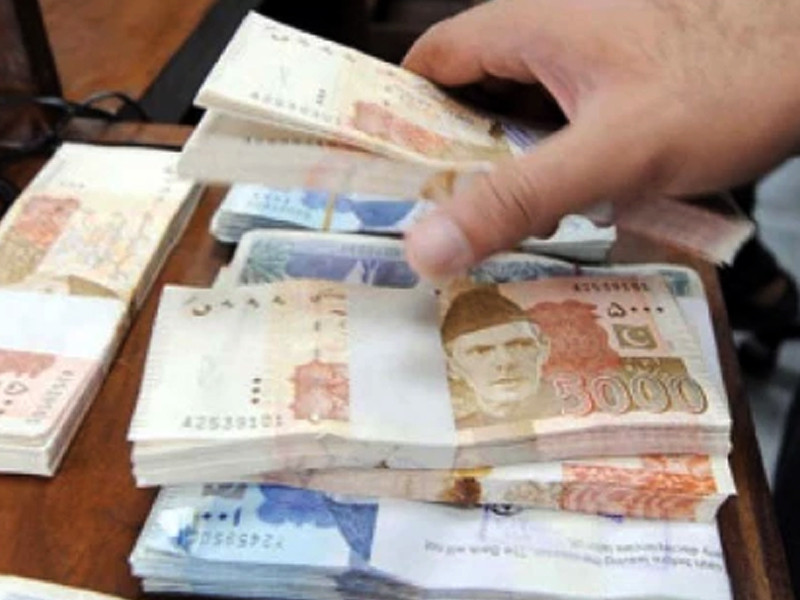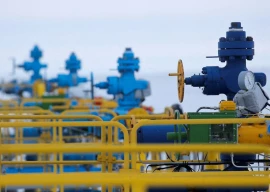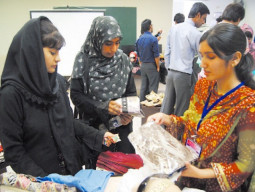
The government approved on Tuesday a Rs32.5 billion package to improve efficiency of the Federal Board of Revenue (FBR) by giving it nearly 1,100 new cars, up to four additional monthly salaries and setting up ex-military men-led Customs posts around the Indus River and in Balochistan.
The Economic Coordination Committee (ECC) of the cabinet approved the Rs32.5 billion package for six months. Subject to the achievement of targeted results, the package will continue in the next fiscal year and the amount will be more than doubled.
Out of the Rs32.5 billion, an amount of Rs5.6 billion was approved for buying 1,087 new cars of 1,300cc engine capacity. About Rs19.7 billion will be spent on anti-smuggling initiatives, of which Rs14.4 billion will be repurposed from the budget.
For giving up to four extra salaries, the ECC accorded approval for Rs2.5 billion while another Rs3.4 billion would be given for enhancing the FBR's operational capacity. It seems that the additional salaries will be given to all FBR employees and one car will be offered to every grade-17 and 18 officer to encourage them to achieve this year's ambitious tax target of Rs12.97 trillion.
A statement released by the finance ministry said that the ECC took up five separate summaries submitted by the FBR as part of the Transformation Plan approved by Prime Minister Shehbaz Sharif.
The ministry stated that the committee held detailed discussions on all proposals and accorded, in principle, approval with the provision that a third-party impact evaluation of the processes and key performance indicators (KPIs) would be conducted before the next budget. A similar impact evaluation of the outcomes in line with the KPIs would be carried out at the end of calendar year 2025 to see the merit of the entire exercise and its impact on the overall goal of enhanced revenue generation and resource mobilisation, it added.
The ECC decided that the Revenue Division and Finance Division would work out the mechanics, including the allocation and release of budgets, under the five proposals. According to the ECC's decision, all grade-17 and 18 officers of the FBR will get a new car of 1,300cc. The estimated financial impact of purchasing vehicles, providing fuel and installing trackers will be Rs5.9 billion for January-June 2025. The officers will also get transit residences at a cost of Rs600 million.
The FBR chairman is of the view that there has been no investment in mobilising field officers and to overcome shortage, 1,087 cars would be bought. The officers will get up to 250 litres of fuel per month. The government approved a Rs3.4 billion budget for six months for enhancing the operational capacity of FBR officers. It will set up a Model Tax Office by engaging auditors through a third-party payroll firm, engaging sector-specific and legal experts for appraisal and examination and setting up an HR cell.
The FBR demanded Rs14.2 billion for the above purpose in the next fiscal year but its approval would depend on the outcome in the current year.
Under the approved plan, the FBR will transform one tax office into a Model Tax Office by staffing it with officers of top quality and high integrity and establishing a taxpayer facilitation centre. It will hire auditors through third-party payroll firms to address the deficiency in audit capacity.
The ECC approved a Rs19.7 billion budget for the anti-smuggling initiative through hiring retired military personnel and using artificial intelligence (AI). Of the total, Rs14.4 billion will be repurposed from the budget.
It approved funds for establishing Digital Enforcement Stations at Indus crossings across the country and on Hub River, under a dedicated Indus Customs Collectorate. It will strengthen 10 strategically located Customs checkpoints in Balochistan and establish a Customs tracking system.
The ECC approved financing for creating 148 posts for retired junior commissioned officers of the army and 1,560 retired military personnel. Funds were also approved for 81 MIS officers, five data mining experts, 10 data analysts, five economic analysts, five information and security system experts and 10 AI experts. The ECC gave its nod for Rs2.5 billion that would be utilised to pay extra salaries to the FBR officers under the performance improvement initiative. To the best performer, up to four basic salaries will be offered whereas the lowest performer will get no additional incentives.
The ECC was told that the overall implication would be equal to two times the running basic salary of BS-17 to BS-22 officers. To keep the incentive separate from routine emoluments, a preferred way is quarterly disbursement rather than monthly releases. The FBR chairman stated that the tax collection-to-tax expenditure ratio stood at only 0.45% whereas in India it was 0.79%.
A performance delivery unit will be set up, for which Rs54 million has been approved. The dedicated Reform Delivery Unit has been set up with 30 officers by re-designating some of the existing posts. They will get a special allowance of Rs200,000 per month.
The ECC approved Rs394.1 million for capacity building of the newly inducted officers. The government has decided to introduce an MBA Tax Management programme for new officers (BS-17) in the Inland Revenue Service (IRS) and in PCS.
The financial impact of the proposal is estimated at Rs177 million for six months. Another Rs218 million was approved for the certification of those officers.

1725784957-0/Tribune-Pic-(17)1725784957-0-405x300.webp)
1724760612-0/Untitled-design-(12)1724760612-0-165x106.webp)















COMMENTS
Comments are moderated and generally will be posted if they are on-topic and not abusive.
For more information, please see our Comments FAQ